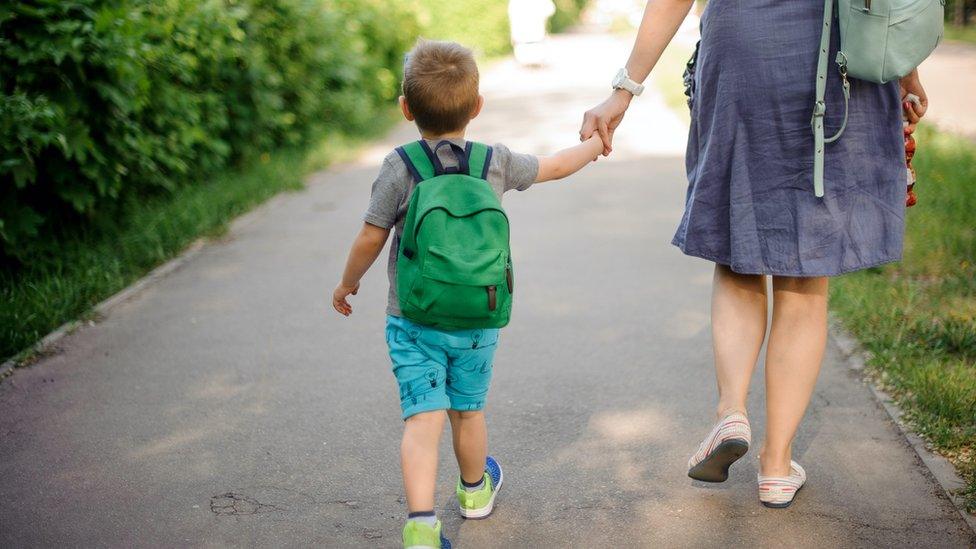Lockdown children forget how to use knife and fork
- Published

The pandemic has seen most children in England slipping back with their learning - and some have gone significantly back with their social skills, says Ofsted.
A report from the education watchdog warns some young children have forgotten how to use a knife and fork or have regressed back to nappies.
Older children have lost their "stamina" for reading, say inspectors.
The Department for Education says it shows the need to keep schools open.
Divided experiences
Ofsted has examined the impact of the Covid-19 pandemic on children, based on visits to 900 schools and early years providers this autumn - and found that it has been a very divided experience.
The chief inspector, Amanda Spielman, says there are three "broad groups" to describe what has happened:
The "hardest-hit" group of young children have suffered from time out of school, going backwards on words and numbers and with "regression back into nappies among potty-trained children" or losing "basic skills" such as using a knife and fork.
The majority of children in the middle "have slipped back in their learning to varying degrees since schools were closed to most children and movement restricted" and the report says: "Lost learning is unarguable, but it is hard to assess."
There are also children who found the lockdown a positive experience - these children, from supportive but not necessarily well off backgrounds, might have benefited from a greater sense of togetherness with parents and "quality time" as a family
But Ms Spielman says this did not divide along the lines of advantage and deprivation, but instead factors such as whether parents were able to spend time with children and families having what she described as "good support structures".
Among older children, Ofsted warns of a loss of concentration among those returning to school and that "online squabbles" that started on social media during the lockdown are now "being played out in the classroom".
There are also reports of a loss of physical fitness, while other pupils are showing "signs of mental distress", with concerns over eating disorders and self-harm.
There are concerns about pupils who have so far not returned to school - and in a third of schools there has been an "increase in children being removed from school to be educated at home".
Schools 'firefighting'
But inspectors say schools are still "firefighting" practical problems about keeping going during the pandemic, with the challenge of operating bubbles and responding to Covid outbreaks.
Geoff Barton, leader of the ASCL head teachers' union, said the report "starkly shows the educational and emotional impact of school closures, and why we need to do everything possible to keep schools open".
But he warned that it was becoming financially unsustainable to keep schools running, with the cost of safety measures and the need to pay for supply staff when teachers had to self-isolate.
A Department for Education spokeswoman said: "The government has been clear that getting all pupils and students back into full-time education is a national priority."
She said the £1bn catch-up fund, including support for tutoring, would help to make up for lost learning.